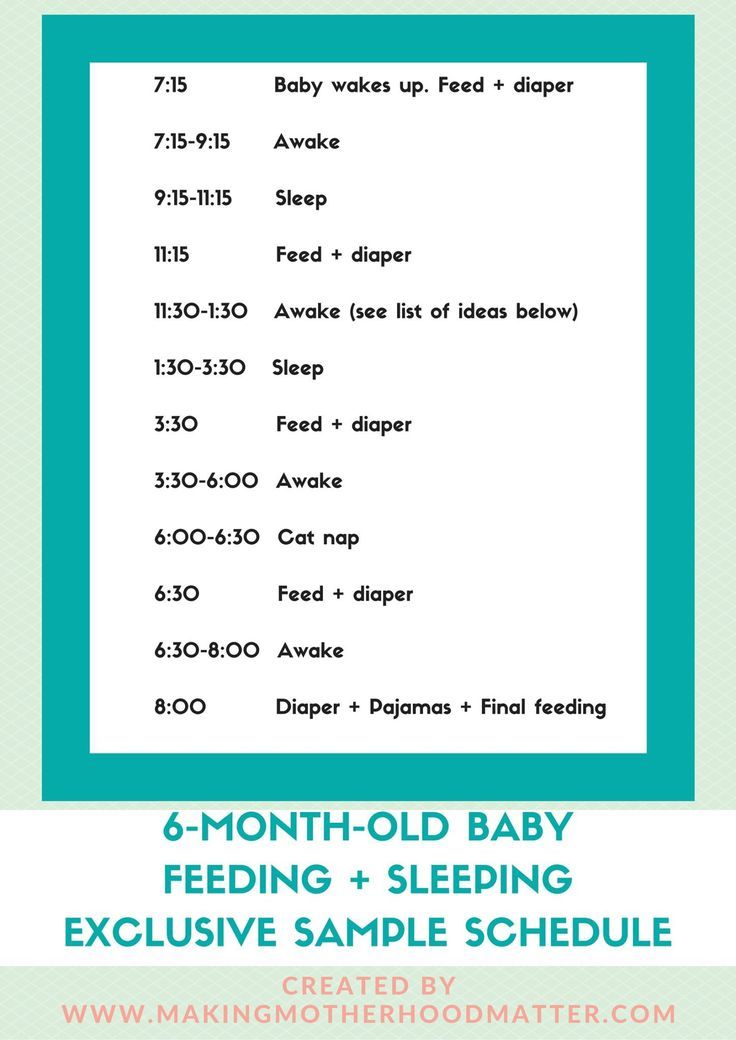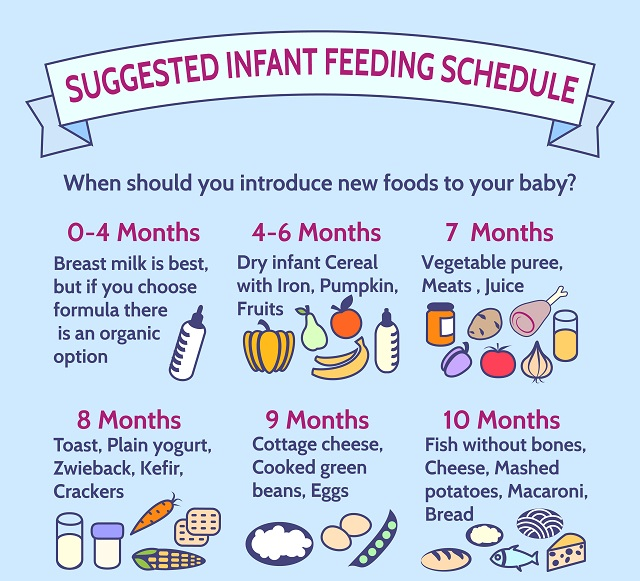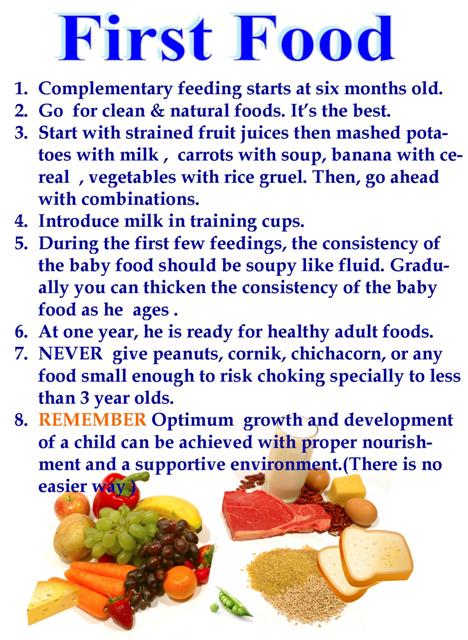Baby wanting to feed all night
How to cope with night feeds | Baby & toddler, Feeding articles & support
Waking up to feed your baby in the early weeks can be mentally and physically tiring. NCT breastfeeding counsellor and postnatal practitioner Fran Bailey shares her tips on making night feeds more manageable.
Sleep – or lack of it – is one of the biggest challenges when you have a newborn. After busy days looking after your baby, you’d be forgiven for looking forward to a good night’s shut-eye.
But the fact is, newborn baby’s tummies are small, and they need to wake up every few hours to feed. It would be a cause of concern if they didn’t! Unfortunately, this means that your own sleep will be incredibly disrupted for the first few months.
NCT breastfeeding counsellor and postnatal practitioner Fran Bailey says:
‘It’s really normal for babies to wake lots in the night to feed in the early weeks and months. This is part of newborn behaviour that ensures they get enough milk but also to keep them safe.
’
Be prepared
It can help to be as prepared as possible to minimise the amount of time you have to spend getting everything ready when you’re tired and your baby’s hungry. If you’re mixed or formula feeding, make sure you have bottles already sterilised, and formula or expressed milk to hand.
Place a changing mat, nappies, change of clothes if needed and wipes (or cotton wool balls and fresh water) close by so you can change your baby quickly. If possible, try to change baby’s nappy before a feed to avoid waking them up too much afterwards. However, only change them if they’ve done a poo or their nappy is very wet, as it might overstimulate them when you’re trying to keep them relaxed.
It’ll help to have your baby in the same room and close to you for the first six months so you can hear when they wake and you don’t have to go too far. This can all help the night feeds feel like less of a mission.
Put a glass of water and even a snack by your bed or feeding chair so you have some refreshment for yourself during feeds.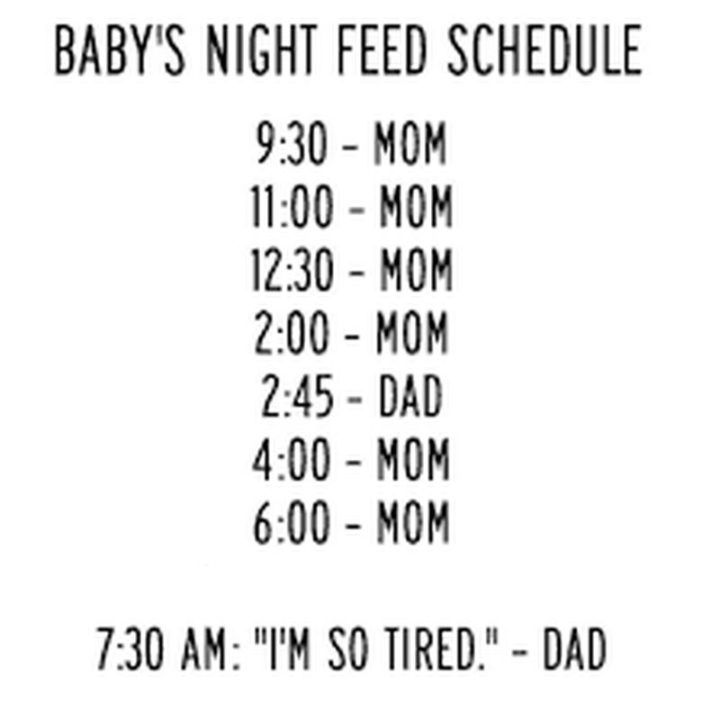
You’re not alone
Involving your partner or a family member or friend with night feeds can make a huge difference. Just knowing you’re not the only one who has to deal with night feeds can help you feel less lonely and like you’re both in this together.
Fran says: ‘In the early weeks, when partners are on parental leave, having some company (and support!) while feeding can be invaluable. Some couples take it in turns to offer a feed to their new baby. For families where women are breastfeeding, this doesn’t mean that partners can’t help.
‘There is lots that partners can do to help in the middle of the night. This might be bringing baby to mum, or changing nappies and settling baby back to sleep.’
"Having some company and support when feeding at night can be invaluable"
After a feed, partners can burp baby and look after them so you can get a few more precious minutes rest. Sharing lots of cuddles and helping to meet your baby’s needs at night can be an important bonding time for your partner and baby, too.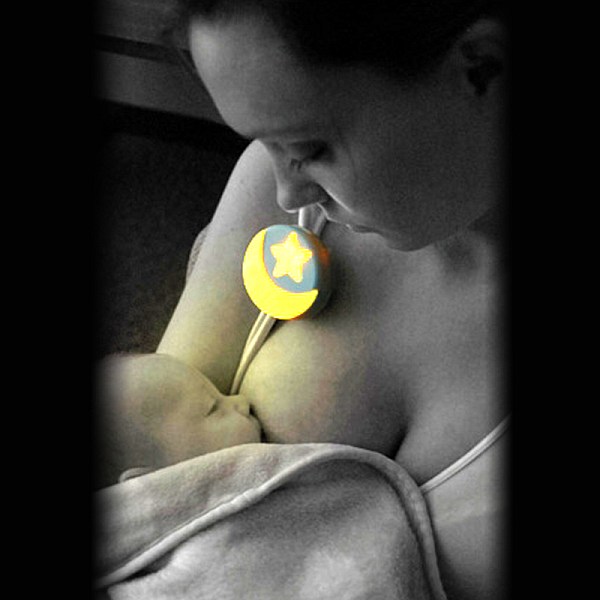
Even if you’ve had to be up for longer in the night, family and friends can help during the day, especially if you’ve got older children. NCT volunteer for Bolton and North West Manchester, and mum to Dorothea and Edward, Lorna says: ‘My hubby works from home, so he gets up with the toddler and baby at 6.30 and I go back to sleep until about 8 to catch up a little.”
If you’re breastfeeding but struggling with the frequent night awakenings, you could express some milk during the day for your partner to bottle feed your baby in the evening (if they’ll take it) so you can get some undisturbed sleep then.
Keep things low-key
Make getting back to sleep after feeds easier by trying not to wake your baby up too much at night. When you’re tired yourself, it might be tempting to put on the TV or go into a bright room, but this can make settling afterwards harder for you both.
Fran says: ‘There are things you can do to help your baby recognise the difference between night and day. Use dimmed lights and more gentle voices during a night feed…this will probably help you get back to sleep too. It’s worth avoiding caffeinated drinks or other stimulants overnight as they might make it harder for you to go back to sleep.”
Use dimmed lights and more gentle voices during a night feed…this will probably help you get back to sleep too. It’s worth avoiding caffeinated drinks or other stimulants overnight as they might make it harder for you to go back to sleep.”
Volunteer Lorna says: ‘I have the lights as low as possible and feed in a rocking chair. I can change my son without having to have too much light on, and not wake either of us up too much.’
To smartphone or not to smartphone?
One of the most popular ways of passing time in the small hours is to check your phone. WhatsApping your NCT friends can be a great way to feel connected and get emotional support during night feeds. Checking the latest celebrity gossip can also make the time pass quicker!
Just bear in mind that mobiles might not always be the best distraction. Fran says: ‘There is some research that indicates that the light from smartphones can interfere with sleep patterns, so some families may find that it is easier to get back to sleep if you haven’t been looking at your phone. ’
’
Find a balance between looking at your phone and focusing on baby. After all, you don’t want to be so absorbed that you don’t realise that your baby is already asleep and you could be too.
Some mums find that Kindles can be a great way to pass the time. One NCT volunteer says: ‘My husband got me a Kindle so I avoided being on my phone too much and it felt more relaxing if I could read – I’ve got through so many books over nine months.’
Sleep like a baby
Even with preparation and help, night feeds can be a shock to the system. It can help to adjust your own ideas of day and night to fit in with your baby. It’s not always easy, but in the early days, it can pay off to try to sleep as much as you can when your baby does during the day. This can really help recover from the birth or multiple wake-ups during the night. Alternatively, get your partner, another family member or a good friend to look after your baby for an hour or two while you lie down.
For the time being, you might have to accept that your sleep will be in chunks, rather than one big, uninterrupted rest.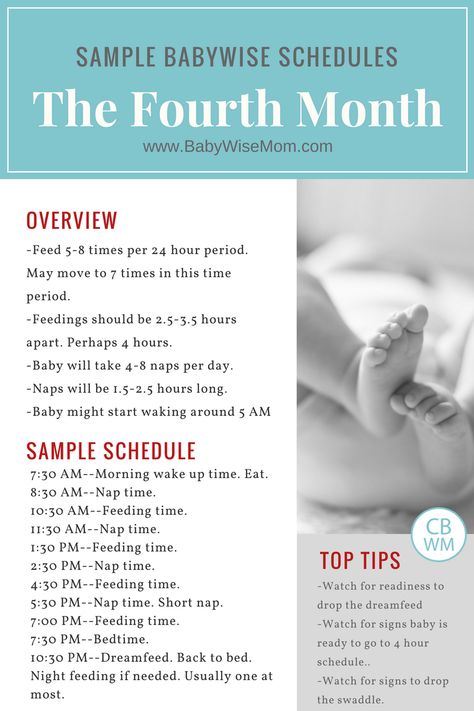 Like with anything, if you’re constantly counting the minutes, the whole experience could feel longer. If you can, accept that night feeds are a necessary part of your baby’s development and it won’t always be like this. Enjoy the extra cuddles and just having time alone with them.
Like with anything, if you’re constantly counting the minutes, the whole experience could feel longer. If you can, accept that night feeds are a necessary part of your baby’s development and it won’t always be like this. Enjoy the extra cuddles and just having time alone with them.
Babies are unique
It’s easier said than done, but try not to get too hung up about how much other people say their babies sleep. While you’re struggling with what feels like constant feeding at night, it’s not helpful to hear that someone else’s child is sleeping through. And there are so many definitions of what 'sleeping through' actually means! For some parents, it's between 11pm and 4am, while for others it means just two very short feeds in the night.
You can’t change your baby’s needs, so instead try to find the best way of getting through night feeds for you. And most importantly, try and remember that the night feeds won’t last forever. Like everything else, it’s a phase that will pass and take you on your next journey with your baby.
Further information
Our support line offers practical and emotional support with feeding your baby and general enquiries for parents, members and volunteers: 0300 330 0700.
Make friends with other parents-to-be and new parents in your local area for support and friendship by seeing what NCT activities are happening nearby. To find out when an NCT nearly new sale is happening near you, search here.
You might find attending one of NCT's Early Days groups helpful as they give you the opportunity to explore different approaches to important parenting issues with a qualified group leader and other new parents in your area.
Newborn Cluster Feeding All Night
Struggling with your newborn cluster feeding all night and not sleeping? See how to make this stage easier and stay motivated to breastfeed.
Cluster feeding has become so predictable these days.
Starting around bedtime, it seems like you’re feeding your baby for several minutes every hour. By the time you’ve burped and swaddled her, she seems hungry yet again. In fact, she’d cry all night if you weren’t feeding her during for a good four to five hours.
By the time you’ve burped and swaddled her, she seems hungry yet again. In fact, she’d cry all night if you weren’t feeding her during for a good four to five hours.
With the constant breastfeeding, your nipples have begun to hurt. You’re exhausted and have no time for anything else, and this doesn’t even count the frequent feedings all day long. You wonder if you even have enough milk, and how she could be this hungry.
Despite your goals to breastfeed, it’s times like these when formula is starting to look like an appealing option.
How to handle your newborn cluster feeding all night
I hear you, mama.
As a first-time mom, I felt glued to my baby, resenting each time he cried to be fed. I even wanted to convince myself and my husband that he was crying for other reasons like sleep or boredom.
This is understandable, considering that the birth of a baby can come as a huge shock for moms not used to nursing round the clock. It didn’t help that he’d nurse for long stretches—some 40 minutes at a time—only to want to eat again soon after.
In fact, right on cue, he’d want to cluster feed from about 6:30pm all the way through the late evening. If I put him down any earlier than that, he’d cry a few minutes later and wouldn’t stop until I fed him again. Even when I learned that this was a phase, I didn’t know how long it would last.
If you find your newborn cluster feeding all night, rest assured you’re not alone. More importantly, this is a phase that will eventually peter out with time. That said, what can you do to make cluster feeding more bearable?
Take a look at these tips that can help:
1. Nurse lying down
One of the biggest roadblocks with cluster feeding is the sleep deprivation that goes along with it.
During the day, feeding constantly was a bit more bearable—after all, this is the time we’re supposed to be awake. But I’d dread the nights when I knew I’d be battling my own sleep needs with the baby’s frequent wake ups.
An easy hack? Nurse lying down. This allows you to rest at least while the baby is feeding instead of having to sit up in bed. Even if you don’t co-sleep with the baby (I didn’t), you can still nurse lying down to make yourself a bit more comfortable during the feed.
Even if you don’t co-sleep with the baby (I didn’t), you can still nurse lying down to make yourself a bit more comfortable during the feed.
Free email challenge: Feeling stuck in motherhood? Want to enjoy raising your kids again? Join my newsletter and sign up for the Motherhood Motivation 5-Day Challenge! You’ll get one actionable tip a day that will make you think (and act) about motherhood differently:
2. Get others to do what you can’t
Dishes piled up, dinner unprepared, the houseplants all but drying up… these are enough to drive any mom crazy. Imagine keeping a running tally of all the things you still have to do, except you’re stuck feeding the baby.
Since you’re the only one who can nurse the baby, hand these undone tasks to other people. Your partner can change diapers, your mom can burp the baby after you breastfeed, even your three-year-old can put his toys away.
Give yourself the permission to do nothing so you can focus on your baby’s feeding needs. To help you feel better about devoting so much time to her, get others to fill in and do what you can’t.
To help you feel better about devoting so much time to her, get others to fill in and do what you can’t.
3. Make sure your baby is actually eating
See if this sounds familiar: You fed your baby for nearly 40 minutes, put her down in the crib… except she woke up and acted like she hadn’t just eaten.
How can she be hungry again?! you wonder.
Sometimes, she’s actually not eating that whole time she was on your breast. She could’ve been comfort nursing, soothing herself to sleep by sucking. That’s why, when you finally put her down, she’s still hungry—because she didn’t actually eat.
The next time she nurses, make sure she’s awake and eating. Listen for sucking sounds that indicate she’s taking in the milk. Look at her throat to see if it moves—this is another sign that she’s swallowing. And keep her awake, even slightly so, while she nurses.
There’s nothing wrong with comfort sucking, but if you’re wondering why she seems hungry after all that time, she might not have been eating.
4. Make the most of it
Sometimes all it takes to turn things is around is a simple change in perspective. Sure, you can list several problems with nursing all evening, but you can also probably find creative ways to make the most of it as well.
See this not as a time you’re “stuck” with the baby, but as a chance to read a book, catch up on emails, or watch your favorite shows. Consider this your excuse to not have to do so many chores, or to take a much-needed break. Come prepared with plenty of snacks and water nearby, and try to enjoy the moment.
Remind yourself of the benefits of cluster feeding, too. Many moms have reported that their babies will sleep in longer stretches after a cluster feed than if they didn’t nurse for so long. Remember that you’re increasing your milk supply the longer you nurse.
And know that this is temporary.
In fact, for the first month after my babies were born, I made it a point not to leave the house, other than for appointments. Giving myself that month reminded me that this truly is the time to take it easy, not to get life back to normal. It’s easier to tough it out when you know it won’t last forever.
Giving myself that month reminded me that this truly is the time to take it easy, not to get life back to normal. It’s easier to tough it out when you know it won’t last forever.
When do newborns get easier? Learn the milestones here.
5. Take care of your breasts
Disclosure: This article contains affiliate links, which means I will earn a commission—at no extra cost to you—if you make a purchase.
There’s no getting around it: constant nursing can take a toll on your breasts. We’re talking cracked, bruised, or bleeding skin, all while your baby is tugging at them. It’s hard to enjoy the moment when you’re in serious pain.
That’s why it’s important to take care of your breasts and not just try to weather the pain. Reach out to your doctor, especially if the pain is unbearable, as you might have an infection that could only be remedied with prescription.
Then, do your best to nurse them back to health. You can:
- Use lanolin cream before and after breastfeeding
- Air dry your breasts, either by not wearing a top or using breast shells
- Use compresses like these
The quicker your breasts can heal, the more comfortable nursing your baby for long stretches can be.
Conclusion
Struggling with your newborn cluster feeding all night is no joke. You’re sleep-deprived, delirious, and downright exhausted from the constant nursing.
Rest assured that you can still do plenty to make this phase go by more smoothly. Nurse lying down so that you have one less obstacle—sitting up—during those nursing sessions. Recruit others to tick off tasks you can’t do, so that you’re not itching to do them yourself.
Check that your baby is actually eating—comfort nursing can trick you into thinking that she’s full when she hasn’t been eating all that time. Make the most of your nursing sessions, from watching movies to reminding yourself of the benefits you get out of them.
And lastly, take care of your breasts, making sure to reach out to your doctor and using home remedies to ease the discomfort.
Hang in there, mama. What you’re experiencing is normal—down to those predictable hours in the evening when your baby starts cluster feeding.
Get more tips:
- Baby Feeding Every Hour (And Not Sleeping, Either)?
- 5 Reasons Your Newborn Is Constantly Hungry and Crying
- 6 Ways to Handle Your Newborn Constantly Feeding
- What to Do When Your Baby Wants to Breastfeed Constantly
- 5 Tips to Stop the Pain After Breastfeeding
Don’t forget: Join my newsletter and sign up for the Motherhood Motivation 5-Day Challenge:
How to wean a child from night feedings
The child is already one and a half years old, but does he still wake up at night and demand to eat? Many parents face this problem. Someone in such cases is trying to rock, others offer to breastfeed, others give some water or milk formula. And what is the right thing to do in such a situation?
Responsible Olga Valerievna Alekseeva , manager Pediatric Branch Krasnoyarskaya Interdistrict Clinical hospitals No. named after and . C . Berzona :
named after and . C . Berzona :
- A breastfed baby can receive mother's milk at night, even if he is over a year old. Of course, if the child sleeps all night, it is not necessary to wake him up. But if he asks, you can give a breast. Breast milk is digested much easier than other products. With bottle-fed babies, the issue is somewhat more complicated, if the child is used to receiving formula at night, then it is recommended that at about the same time (a year and a half) wean from night feedings. nine0003
Why at night is harmful ?
Dentists often write in scientific articles about dental problems in children who, day and night, do not part with a bottle of sweet tea or juice. Frequent intake of something sweet, especially at night, leads to cavities and more serious dental problems. Therefore, it is highly recommended to avoid sugary drinks at night, even if it is fruit yogurt or “no added sugar” baby juice (juices still contain fruit acids, which can also be dangerous for enamel). nine0003
Therefore, it is highly recommended to avoid sugary drinks at night, even if it is fruit yogurt or “no added sugar” baby juice (juices still contain fruit acids, which can also be dangerous for enamel). nine0003
Another reason why you should not eat at night is the mode of operation of the gastrointestinal tract. Eating is a load on the digestive glands, which must also rest at night. Ideally, the child's nutrition should be according to the regimen: three main meals (breakfast, lunch, dinner) and 2-3 additional (for example, second breakfast, afternoon tea, milk drink at night, without any other snacks) and about one and the same time. Then the body will be better prepared for eating, the process of digestion will be better. How to teach a baby to eat from a very early age, so he, most likely, will eat in the future. nine0003
How Take out Child is according to Nights ?
If wake up at night and not may fall asleep without , at first 9 9009 9 9009 find out , enough whether him food in the afternoon . Maybe he's really hungry at night. Before canceling nightly meals, it is necessary to assess the weight and height of the baby (whether there is a deficiency), and also compare his daily diet with that due to age. If it is difficult for the mother to do this herself, you need to contact the pediatrician.
Maybe he's really hungry at night. Before canceling nightly meals, it is necessary to assess the weight and height of the baby (whether there is a deficiency), and also compare his daily diet with that due to age. If it is difficult for the mother to do this herself, you need to contact the pediatrician.
You can adjust the diet, for example, by “strengthening” dinner: if the child usually eats vegetables, give porridge instead, it will give better satiety and reduce the likelihood that the child will wake up hungry at night. If the baby is on formula, special evening formulas can be used before bedtime, milk drinks levels 3 and 4 are an important part of the nutrition of a child over one year old. After correcting the daily diet, it is necessary to gradually reduce the amount of mixture or kefir that the child eats at night. For caloric content, the child now does not need them, it's just a habit. A simple trick will help prevent stress, make the rejection of the nutrient mixture less painful: dilute the baby food with water, gradually reduce the percentage of the mixture. nine0003
nine0003
Most pediatricians and psychologists advise involving a man in the process of weaning from night feedings. Let dad put his one-year-old son or daughter to bed more often, sing songs, and mom sit next to him, but not take the child in her arms. Gradually, the mother moves away from the crib so that the father can fully pay attention to the child, and the mother is out of sight. It’s good if a man also calms the baby at night.
It is unlikely that you can quickly stop night feedings, but this is necessary for the health of your child. With an integrated approach, you will succeed! nine0003
Press - service KGBUZ "KMKB No. 20 named after and . C . Berzon , t . 264-00-71, press@krasgkb20. ru
ru
Displaced feeding schedule: why does your baby eat all night and how to change it?
03/12/2017
139961
79
feeding and sleep
3-6 months --9 months–18 months
Article
Natalya Trofimova
Natalya Trofimova
Senior Consultant for SNO, pediatrician
Mom of two daughters
Your baby is little or rarely eaten during the day , but at night hangs on the chest for a long time or often asks for a bottle? This is called a "shifted feeding schedule". With this organization of nutrition, the child receives the bulk of the calories at night. During the day, feedings are either short or rare, or the baby refuses the breast or bottle altogether. After six months, there may be difficulties with the introduction of complementary foods, especially with unformed nutritional interest. nine0003
Child crisis calendar
Why is this happening?
- During periods of crisis in a child's development (a developmental leap, teething, an acute illness, any strong emotional experiences), a temporary and sharp increase in the number of feedings is normal, it just needs to be waited out.

- Babies in their first months of life can “mix day and night” and, accordingly, stay awake and eat mostly at night.
- Older children become interested in everything and are easily distracted during the daytime feedings, butting for a short time, because they have too many important things to do during the day. nine0210
- With the introduction of complementary foods, mothers sometimes begin to replace daytime feedings with breast milk or formula with low-calorie fruit and vegetable purees, and the baby has to “get” calories at night.
- Mixed feeding when breast milk and formula are clearly separated by time of day. When breastfeeding only during the day, the baby may refuse the breast if he prefers a bottle that is given only at night. And vice versa, when feeding during the day with a mixture, and at night with a breast, if the baby prefers the breast. nine0210
- Breastfeeding mother works outside the home or is separated most of the day from the baby (even with the possibility of pumping).
 Breastfeeding at night helps the baby make up contact with the mother and stimulates lactation. This is a good option if you manage to organize a dream so that everyone gets enough sleep.
Breastfeeding at night helps the baby make up contact with the mother and stimulates lactation. This is a good option if you manage to organize a dream so that everyone gets enough sleep.
Answer a few questions to understand if your feeding schedule is shifted:
- How many times does the child eat during the day and how, how many times does he wake up at night? nine0210
- Does he eat for a long time every night when he wakes up, are sips audible, or is it mostly short attachments with superficial sucking for a couple of minutes?
- Are the daily feeds long, does the baby let go of the breast when it is full, or is it often torn off and distracted?
- Can a baby fall asleep without breastfeeding or a bottle (both day and night) or is this the only way to fall asleep?
Frequent nightly "snacking" does not always indicate that the feeding schedule is shifted.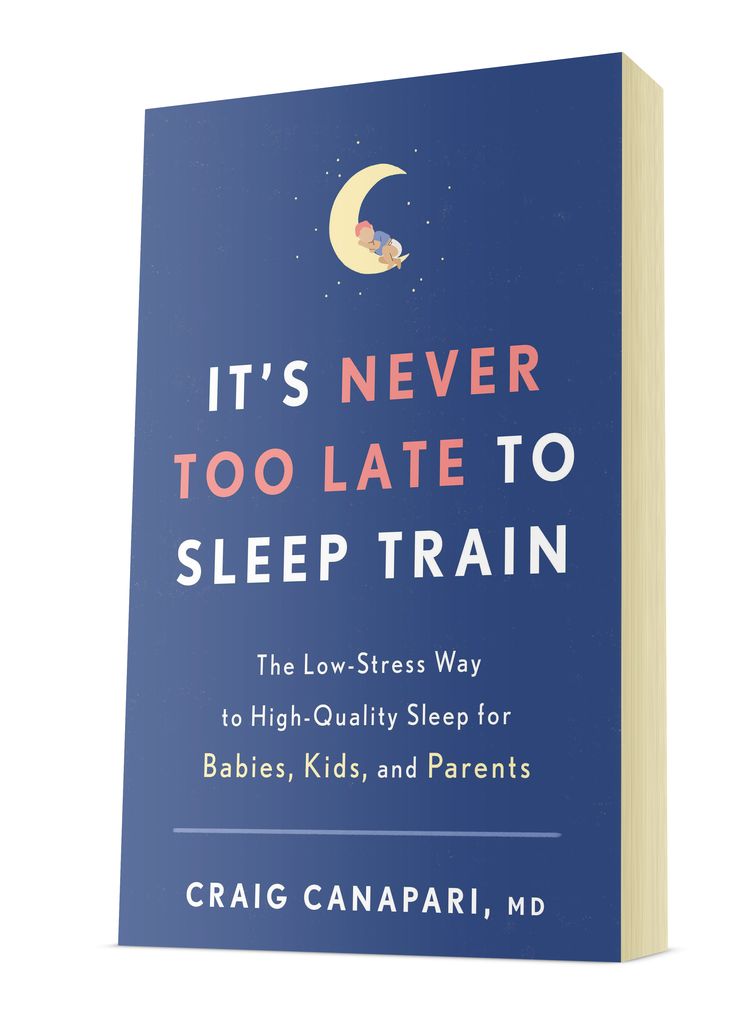 If feeding is a way to relax and fall asleep, then when awakened at night between sleep cycles, the breast or bottle will again be required to fall asleep. This is an association with sleep, the way and habit of falling asleep. nine0003
If feeding is a way to relax and fall asleep, then when awakened at night between sleep cycles, the breast or bottle will again be required to fall asleep. This is an association with sleep, the way and habit of falling asleep. nine0003
What such feedings usually look like:
- The baby wakes up every 1–1.5 hours at night and asks for food, and during the day he usually eats after 3 hours, which means that he is unlikely to feel hungry.
- The child eats very little at night: he kissed his chest for a minute or a bottle, ate 10-20 ml and fell asleep - in this case, he does not have a goal to eat.
- If there is an association for sleep, but the daily appetite does not suffer, mother and baby get enough sleep, there is nothing to worry about. In order for the number of nightly awakenings and feedings to allow sufficient sleep, even if there is an association for sleep, the child must be well suited to sleep and wakefulness. nine0210
Is it possible to change the habit of eating at night and when should I wait?
As much as one would like to reduce the number of night feedings, there are situations when they are necessary.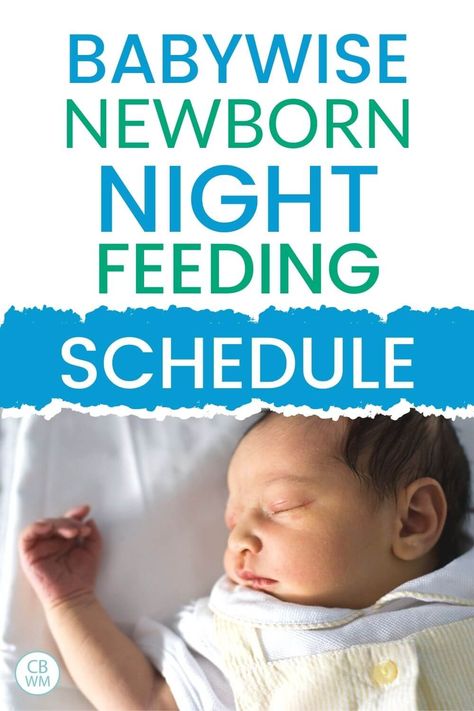 For example, a baby in the first months of life does not gain weight well, there are problems with lactation (little milk, false breastfeeding), adaptation to a therapeutic mixture with a specific taste and refusal to wake up, the baby feels unwell (sick, teeth are being cut), a child is experiencing a developmental leap, stress, a long separation from her mother. nine0003
For example, a baby in the first months of life does not gain weight well, there are problems with lactation (little milk, false breastfeeding), adaptation to a therapeutic mixture with a specific taste and refusal to wake up, the baby feels unwell (sick, teeth are being cut), a child is experiencing a developmental leap, stress, a long separation from her mother. nine0003
The assistance will depend on the age and the reason for the predominance of night eating. In the first months of life, with the "confusion of day and night," it is important to show the baby when it is day and when it is night. For daytime sleep, you do not need to create a strong blackout, and at night you need to ensure maximum darkness in the room. Limit overly long naps. All activities, walks, communication - during the day, no games at night.
If the baby is distracted during feedings and “forgets” to eat, you need to create the most calm atmosphere during feedings: turn off the TV, do not use the phone, retire to a darkened quiet room, turn on white noise. You can put a bright scarf around your neck, slingobuses, any baby rattle on a ribbon. Try a different position with less visibility, such as kneeling facing you or in a sling. nine0003
You can put a bright scarf around your neck, slingobuses, any baby rattle on a ribbon. Try a different position with less visibility, such as kneeling facing you or in a sling. nine0003
With the introduction of complementary foods, do not rush to replace breastfeeding or mashed formula. The first vegetable or fruit purees are not comparable in calories to breast milk and formula. Occupying volume in the stomach, they reduce milk intake during the day. Complementary foods can fully replace feeding only after 8 months, when it will make up about 20–30% of nutrition and the baby will eat cereals, meat, and vegetables.
On mixed feeding, it is desirable to supplement the baby with the mixture in the required amount after each application to the breast, or feed the mixture by the hour (at regular intervals), and breastfeed on demand. nine0003
A breastfeeding working mother has the hardest time reducing the number of night feeds. To do this, you need to feed the baby often enough during the day, a maximum of 3–3.



